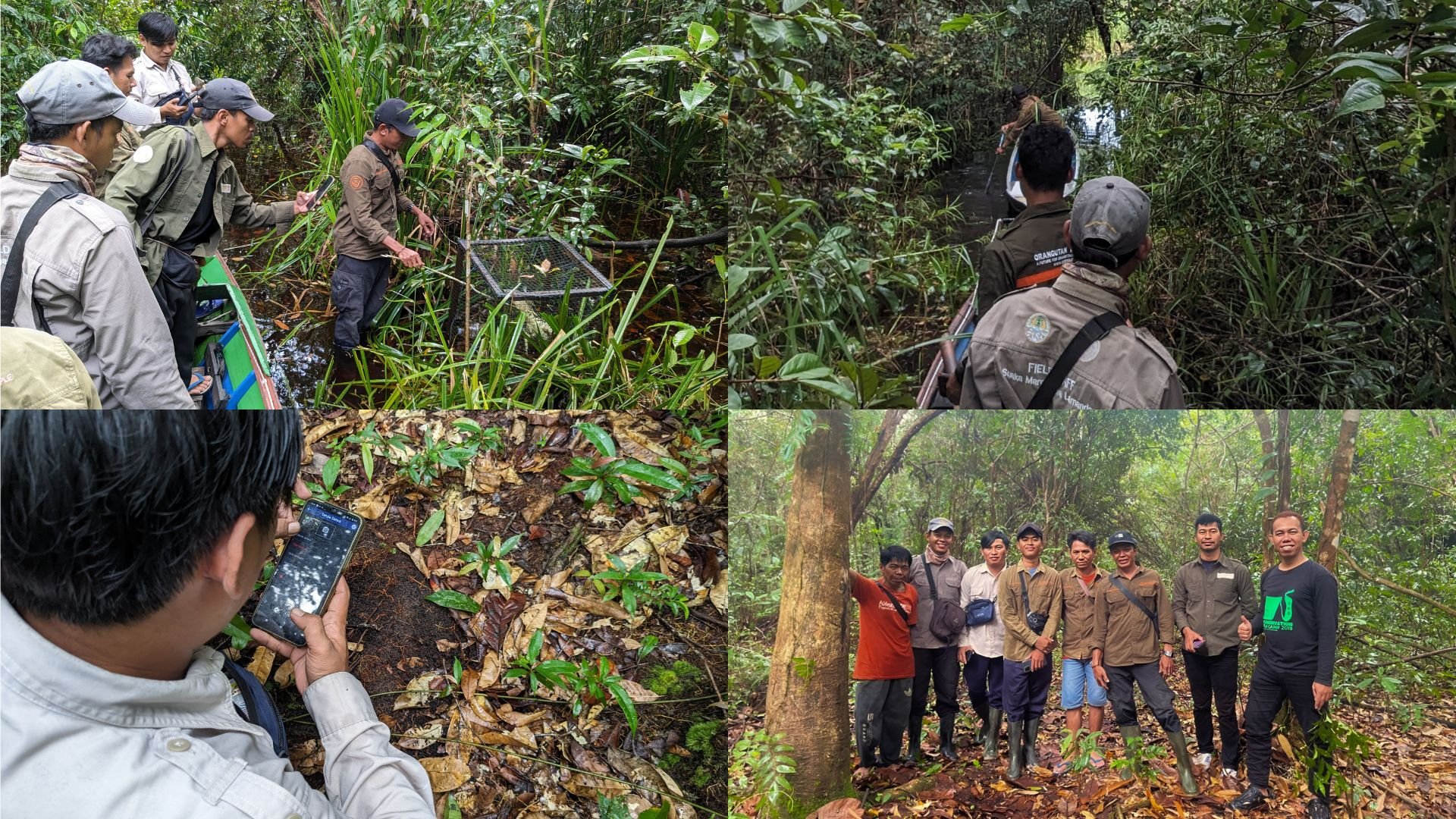WORKSHOPS & FIELD TRAINING
To learn and improve the skills of both staff members and stakeholders we regularly run workshops and training related to our work for orangutans, forests and people.
STAKEHOLDERS
Human-Orangutan Conflict Mitigation Workshops
Workshops are held for stakeholders on human-wildlife conflict mitigation. These workshops raise awareness of the correct response to animals that enter community lands and oil-palm plantations.
PLANT IDENTIFICATION AND CAMERA TRAP ANALYSIS TRAINING
Training is provided to local stakeholders on plant identification and how to analyse camera trap footage. Delivered alongside BKSDA and hosted by Yayorin, our local NGO partner, this training improves the technical skillsets of participants for habitat and biodiversity surveying.
MULTI-STAKEHOLDER WORKSHOP WITH OIL-PALM COMPANIES ON HOW TO MANAGE ORANGUTAN POPULATIONS
Workshops are held with the local government and private sector – logging and oil-palm companies - with the aim to establish Best Management Practices (BMPS) and improve synergy between parties.
ORANGUTAN POPULATION SURVEYS
Best Management Practice workshops include orangutan population surveys outside of protected areas.
STAFF
SMART PATROL TRAINING FOR GUARD POST STAFF
To improve habitat protection, we provide training to guard post staff on how to use SMART technology. This software enables GPS mapping of forest activities, plant and animal species, and specific trees being targeted by loggers.
SCHOOLS
Conservation Corner Workshops
Key to our education programme, our team delivers ‘Conservation Corner’ workshops to local schools and youth groups. These activities increase awareness of orangutan conservation and the importance of their habitats. By sharing this knowledge, we help to empower Indonesia’s youth to take positive climate action for their future.
Jungle visits
Surveys have shown that many locals have never stepped foot in the rainforest on their doorstep. We provide young people with trips to the forest including hikes and camping to foster a sense of connection with the natural world.
TREE PLANTING DAY
To celebrate Tree Planting Day, this annual event invites young Indonesians to plant a tree to contribute to forest restoration. This hands-on experience with nature hopes to inspire young people to be more involved with local conservation.











